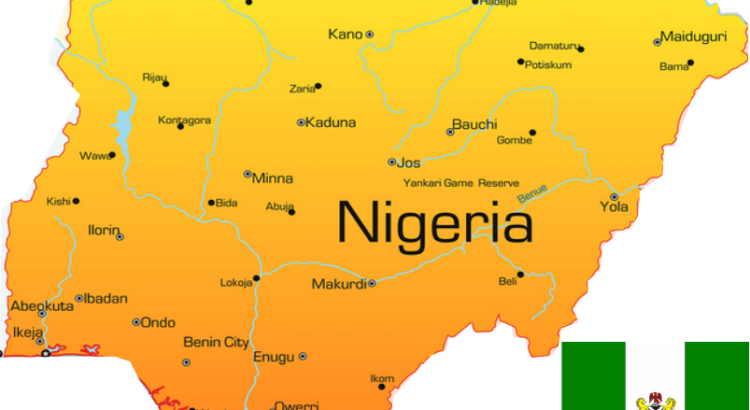Nigeria/November 21, 2017/Source: http://allafrica.com
The Federal Executive Council [FEC] held a special retreat in Abuja last Monday on the challenges of education in Nigeria. The retreat had the theme: «Education in Nigeria: Challenges and Prospects.» President Muhammadu Buhari declared it open while Vice President Yemi Osinbajo and most ministers were present. The decision to hold the retreat was first made in June at a FEC meeting chaired by then Acting President Osinbajo. Minister of Education Malam Adamu Adamu said at the time that «[FEC] members agreed that the falling standards in education are so serious that we will need a ministerial retreat to look at all the issues…Initially, we had prepared a blueprint but FEC felt the issue is beyond that because there are crises in all the areas of education, in out of school children, in technical education and training, in ICT, in all the areas you can think of.»
The minister increased the areas of educational malaise when he spoke at the 2017 Convergence Education Summit in Abuja last week. He said, «The education sector is plagued with so many challenges. Some of the challenges include dearth of qualified technical teachers, dilapidated and inadequate classrooms, lack of tools and equipment for technical and vocational education, poor data for educational planning and administration. Others are dearth of critical ICT infrastructure and services, low access to tertiary education due to insufficient institutions, multiplicity of curriculum-related issues, problem of out-of-school children and poor funding, among others.» The list looks very long but the minister actually left out other areas such as poor quality of teachers in many states, high drop-out rate, inability of many parents to pay their children’s exam fees, widespread malpractice in exam administration, the problem of fake certificates and sexual abuse, among others.
President Buhari’s opening speech at the retreat was overshadowed by a remark he made about Kaduna State Governor Nasir el-Rufai’s plan to sack 21,780 teachers who failed a basic competency exam. Most newspapers seized on that remark and had screaming headlines that «Buhari backs el-Rufa’i’s plan to sack teachers.» This was unfortunate because the Kaduna controversy is but a flash in the pan when it comes to tackling the major problems devilling education in Nigeria.
In his speech at the retreat, Minister of Education Malam Adamu Adamu called for a state of emergency to be declared in education. He said «all change must begin with education because if we get education right, other areas of our national life will be right and they will fall in line.» This is true indeed but what is the solution? The minister said, «What is needed is vastly improved funding accompanied by a strong political will.» He said while the Buhari administration has the will, what it «must now do is to make the funds available.» Both are easier said than done. The APC administration’s political will to solve the deep-rooted problems of the education sector is yet to be proved. As for funding, Malam Adamu said among sub-Saharan African countries, Nigeria commits far less to education as a percentage of its budgets than smaller and less endowed nations in the region.
«From 1999 to date,» the minister said, «the annual budgetary allocation to education [in Nigeria] has always been between four per cent and 10 per cent.» He said none of the E9 or D8 countries other than Nigeria allocates less than 20 per cent of its annual budget to education. It is true that for a developing country such as Nigeria, all sectors of the socio-economy are yearning for greater attention. If however we believe, beyond mouthing slogans, that education is the sector with the greatest multiplier effect for national development, then we must up our game and greatly increase spending in education at all levels to address the myriad of problems that have already been identified.
That assertion has caveats, however. The education sector is not spared from the national malaise of corruption. It cannot be said that this country has got real value for the amounts we invested in education, less though they are compared to other countries. The anti-corruption campaign being waged in other sectors must also be waged vigorously in the education sector, otherwise pumping in more money could be an exercise in futility.
It was not said after the FEC retreat whether it accepted the minister’s prayer to declare a state of emergency in education. In case it decides to do so at a later date, the elements in this declaration and the timelines for achieving specific targets should be made clear to all Nigerians so that we can all monitor compliance. Besides, the problems of education in Nigeria cannot be tackled by the Federal Government alone. In fact, state and local governments have a greater role to play in education than the Federal Government. The sectors the latter are mainly responsible for, i.e. primary and secondary education, are the ones that have suffered the greatest quality deterioration and are more badly affected by other problems. Needless to state, the Federal Government’s heavy investment in tertiary education can hardly achieve desired results if the two lower tiers of education are in crises.
That is why last week’s ministerial retreat should be followed up by a wider stakeholders’ summit involving the other tiers of government as well as non-government actors in the sector, local and international. At the end of it, a comprehensive yet simple blueprint of action with reasonable timelines should be produced and widely circulated in the country. At that point the President should bring his full moral authority to bear to get all actors to key into the program and bestow on it the political will and resource infusion. Hopefully within a few years the country will begin to reap the fruits of such concerted action.
Source:
http://allafrica.com/stories/201711190024.html







 Users Today : 27
Users Today : 27 Total Users : 35460236
Total Users : 35460236 Views Today : 33
Views Today : 33 Total views : 3418928
Total views : 3418928